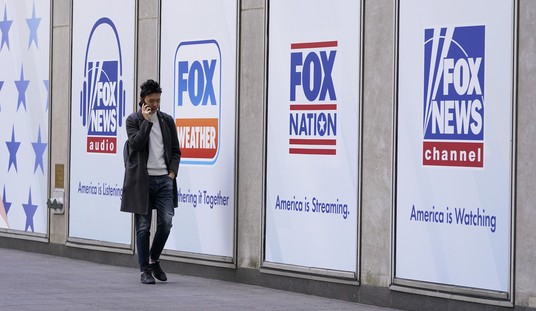As conservatives suffer endless repetitions of the solemn, soggy Democratic mantra of “shared sacrifice,” they need to resist the powerful temptation to snarl back, “I’m already sacrificing more than enough, thank you very much!”
Of course it’s only natural to feel righteous indignation toward some smug lefty who wants to take money out of your pocket, but it’s more important in this situation to win the substantive argument by underlining the core distinction between what government gives and what government takes. As the euphoria fades following Osama bin Laden’s demise and the nation gets back to the bitter business of coping with a looming fiscal catastrophe, Republicans need to fight back against cunning liberal attempts to equate a reduction in benefits distributed by the bureaucracy with an increase in taxes collected by that same bureaucracy.
Their argument insists that the only component of society never expected to sacrifice in any way is the government itself, with the ferocious fans of federal power refusing to consider meaningful reductions in its scope, work force or resources. The real question isn’t whether the top 2 percent of wage-earners will pay what Barack Obama considers their fair share: They already shoulder a wildly disproportionate part of the burden, with IRS figures showing wealthy Americans paying the highest percentage of total income taxes in more than 50 years.
The true shirkers aren’t wealth producers and job creators: They’re the politicians and other public employees who indignantly resist giving up their cherished programs and prerogatives. Not only do the president and his allies exclude these preening “public servants” from calls for shared sacrifice, but the White House actually wants to increase governmental expenditures for favored priorities like high-speed rail, wind farms, educational boondoggles, and other aspects of the “Winning the Future” (WTF) agenda.
Recommended
Despite liberal attempts to exploit envy, the real battle of the budget isn’t a class-warfare feud between “the needy” and “the greedy” over who will pay what to whom. It is, rather, the eternal struggle over whether the government should shrink or grow; whether power brokers in the nation’s capital will command less or more of the wealth generated by the private sector.
The right choice would seem obvious at a time when Washington already borrows 40 cents of every dollar it spends , and overwhelming majorities agree that the government tries to do too much, wasting billions (if not trillions) through a broad array of inefficient, corrupt, and ill-advised initiatives.
How, then, does the left still manage to gain traction from its “shared sacrifice” slogan? In part, their arguments sound plausible when they contrast “painful benefit cuts” for the destitute with “lavish new tax breaks” for the super-rich. The president insists that it’s wrong to “balance the budget on the backs of the poor” in order to give “more tax cuts to millionaires and billionaires who haven’t even asked for them.”
In responding to such toxic us-versus-them rhetoric, Republicans face the daunting task of reassuring the public that the Ryan budget plan actually calls for corporations and wealthy Americans ultimately to pay more to the government, not less. The GOP overhaul follows the basic outline of Obama’s own deficit commission, mandating a sharp reduction in tax rates, but producing higher tax collections because of the elimination of loopholes and special-interest tax breaks that sustain a monstrously complex, inefficient, and utterly irrational system.
The public feels rightly outraged at accounts of profitable corporations (like General Electric) and occasional multimillionaires who find a way to escape taxes altogether. But the proper means for dealing with such anomalies isn’t to raise tax rates; it’s to eliminate illogical breaks and unjustified writeoffs in the tax code. After all, a fat cat who’s currently paying little or nothing to the IRS won’t suddenly cough up a bigger share because you lift the top marginal rate by 4.6 percent (as Obama proposes) or even 44.6 percent. The same breaks and dodges and accounting tricks will still apply until the government takes them away and institutes a flatter, fairer, vastly simpler tax system--one that will spare Americans from the prodigious waste of time in tax compliance, estimated by economist Arthur Laffer as costing more than $400 billion a year.
Leading up to the 2012 election, it’s even more important for Republicans to refocus the argument on the future size of government, rather than allowing a distracting dispute over who should pay to keep the federal operation at its current size, or growing even larger.
Washington’s spending took an average of 18 to 19 percent of GDP during the first 62 years after World War II; under President Obama, that percentage has soared and, according to the president’s own budget figures, will hover near 25 percent for the foreseeable future.
And what crucial services do the feds now provide to a helpless, hapless populace that they ignored in the prior six decades?
This challenge leads inevitably to the one uncomfortable question liberals can’t evade: How can they honestly compare the right of federal beneficiaries to the money they receive from Washington’s largesse to the right of hard-working citizens to the money they earn for themselves?
The term “entitlement” has become an important feature of this debate. In a just society, the most important entitlement would involve the right to keep as much as possible of the fruits of your own labors—not maintain some arbitrary level of governmental support you never earned.
Regardless of the specific details in one deficit reduction plan or another , the differences in underlying ideology remain stark and unmistakable. The left wants government to take more and spend more, commandeering a larger chunk of the overall economy. The right wants government to spend less and take less, leaving the nation’s citizens with a bigger, broader zone for untrammeled control of their own lives.
Let the Democrats preach about sacrifice; conservatives need to emphasize opportunity. What they want you to give up isn’t just dollars, it’s power. And what free marketeers insist that you should keep isn’t mere money, it’s the individual choice and personal liberty that provide the only real hope for economic recovery and national growth.
This column appeared originally in The Daily Beast on May 6, 2011

























Join the conversation as a VIP Member